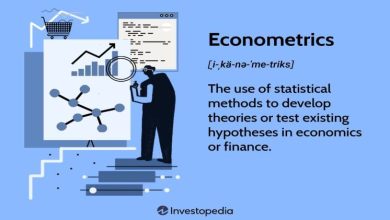Understanding Mortgage Diversity: Exploring Various Types of Home Loans

The world of mortgages is diverse, offering a wide array of loan options tailored to meet the unique needs of borrowers. From traditional fixed-rate mortgages to specialized government-backed loans, each type of mortgage has its own features and benefits. Understanding the diversity of mortgages is crucial for both borrowers and mortgage professionals, as it allows for informed decision-making when selecting the most suitable loan. In this blog, we’ll explore various Types of Mortgage and home loans, shedding light on their characteristics and the relevance of understanding mortgage diversity, especially for professionals pursuing a CeMAP qualification.
Table of Contents
- Importance of Understanding Mortgage Diversity
- Types of Mortgage
- CeMAP and Mortgage Diversity
- Conclusion
Importance of Understanding Mortgage Diversity
To successfully advise customers and negotiate the complexities of the mortgage market, professionals seeking a CeMAP accreditation and aspiring mortgage advisers need to have a solid understanding of the various landscape of mortgages. Professionals who comprehend many house loans can match borrowers with the best mortgage products according to their aims and financial situation. Additionally, by keeping up with changes in the mortgage product market and industry trends, experts may ensure that the advice they provide their customers is correct and current.
Types of Mortgage
Fixed-Rate Mortgage: A fixed-rate mortgage is one of the most popular kinds of house loans. This mortgage gives homeowners predictable monthly payments since the loan’s interest rate stays the same. Fixed-rate mortgages are popular among those looking for long-term financial assurance because of their steadiness.
Adjustable-Rate Mortgage (ARM): Unlike a fixed-rate mortgage, an ARM has an interest rate that can fluctuate over time, typically based on an index such as the London Interbank Offered Rate (LIBOR). Although adjustable mortgages (ARMs) sometimes have lower starting interest rates, there is a chance that future rate increases may result in higher monthly payments.
Interest-Only Mortgage: Homeowners may only pay interest on their mortgage for a certain amount of time, often the first few years of the loan term. Borrowers must start paying principle and interest when the interest-only term expires, which might mean larger monthly payments.
Government-Backed Loans: The Federal Housing Administration (FHA) and the Department of Veterans Affairs (VA) are two examples of government organizations that insure or guarantee these loans. Government-backed loans are available to a wider spectrum of borrowers due to their often more accommodating eligibility criteria and reduced down payment alternatives.
Jumbo Loans: Properties over conforming loan restrictions established by government-sponsored organizations like Freddie Mac and Fannie Mae are financed via jumbo loans. The higher credit and income restrictions associated with jumbo loans are usually due to their bigger loan amounts.
Hybrid Mortgage: A hybrid mortgage combines elements of both fixed-rate and adjustable-rate mortgages. A 5/1 ARM, for instance, has a fixed interest rate for the first five years, after which it changes every year to the state of the market.
CeMAP and Mortgage Diversity
Completing a CeMAP accreditation requires professionals to be thoroughly aware of the variety of mortgages to advise customers accurately and thoroughly. CeMAP covers a wide range of mortgage products and gives professionals the information and abilities to assess which mortgage solutions most suit their customers’ requirements. Professionals may prove their proficiency in navigating the intricacies of the mortgage market and advising customers on the best mortgage alternatives by earning a CeMAP accreditation.
Conclusion
Borrowers looking to finance their houses have a variety of alternatives thanks to the variety of mortgages available. Every kind of mortgage has pros and disadvantages, from conventional fixed-rate mortgages to customized government-backed loans. Understanding this variability is essential for mortgage industry experts to provide customized advice and assist customers with the mortgage process. Professionals may use their thorough awareness of mortgage variety to assist clients in making wise selections and realizing their aspirations of becoming homeowners.


